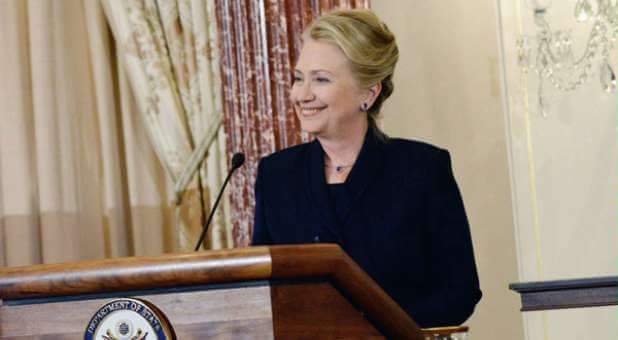Recently, Alisyn Camerota interviewed me on CNN about why evangelicals supported Donald Trump in light of the Stormy Daniels controversy. At one point, she pushed when I said we’d overlook behavior from long ago because we like his policies. (If you missed the interview, you can watch it here.)
Camerota said: “I understand. That one does make sense. But isn’t it a little like saying, ‘I really like Harvey Weinstein’s movies, so I’m going to overlook what I know to be true about Harvey Weinstein.'”
I replied: “Look, there was an election between two people, and the other person was Hillary Clinton—in my opinion, one of the most corrupt people to ever run for president. Plus, she tried to shame the women who came up to her husband. And what about the email scandal? She certainly is not perfect.”
Camerota didn’t try to defend Hillary. Yet she and many liberals couldn’t believe Donald Trump defeated her and that he did it in a major way by winning states that are usually safe states for Democrats. But liberals are not the only ones still puzzled. Hillary Clinton is also wondering what happened in the 2016 election. But the same issues about dishonesty and corruption that dogged her two years ago continue to plague her today.
On back-to-back days last month, LifeZette.com—the news site Fox News host Laura Ingraham co-founded—ran articles about the current woes of the Clinton Foundation. This includes, first, “maturing investigations” into charity frauds by the IRS, FBI and multiple foreign governments and, second, the foundation filing mandatory annual reports months late and failing to disclose required details about grants and spending.
In my best-selling book, God and Donald Trump, I detail how although Trump was able to capture the evangelical vote because he was on board with matters that were important to them, many faith-based voters just couldn’t get past Hillary Clinton’s seemingly dishonest behaviors and shady dealings.
Not only were her platform policies anathema to all but a few evangelicals, but her history of corruption, the email scandal that erupted over her private server and the “pay for play” favoritism she had manipulated through the Clinton Foundation while she served as secretary of state were enough to turn the stomach of anyone who believed in honesty and transparency in government.
Democrats had hoped to win back the House and the Senate as part of Clinton’s inevitable White House win, but God had other plans. Instead, they lost all three. As a result, no one was really surprised the Democrats were so alarmed at Donald Trump’s victory.
Their agenda and their cushy appointed jobs in the government were being threatened for the first time in a decade, or maybe two, and that was enough to make them a bit crazy. Even more extraordinary was the level of hatred spewing from Clinton’s supporters in every corner of the country—not only in Washington, but also in New York, Hollywood and many other places across the fruited plain.
Donald Trump knew he faced a difficult race. He encountered an overwhelmingly negative press, vulgar broadsides by the sitting president and members of Congress, insults by celebrities and stereotypes from the media as a racist and bigot.
He would need a way to fight back, and he found it with Twitter, as he talked with his 35 million followers on @realDonaldTrump. Later, he would add another 20 million followers on @POTUS, and Twitter would become Donald Trump’s direct link to the American people.
If you believe God’s hand has been behind Donald Trump’s presidency, you’ll appreciate my book’s inside look at the Donald Trump campaign, election and presidency thus far. I also shed light on how he engaged with evangelicals and other faith groups to claim victory.
For more information on God and Donald Trump, visit godanddonaldtrump.com and view my book’s video. On the website, you can also download a free chapter and order the book.












